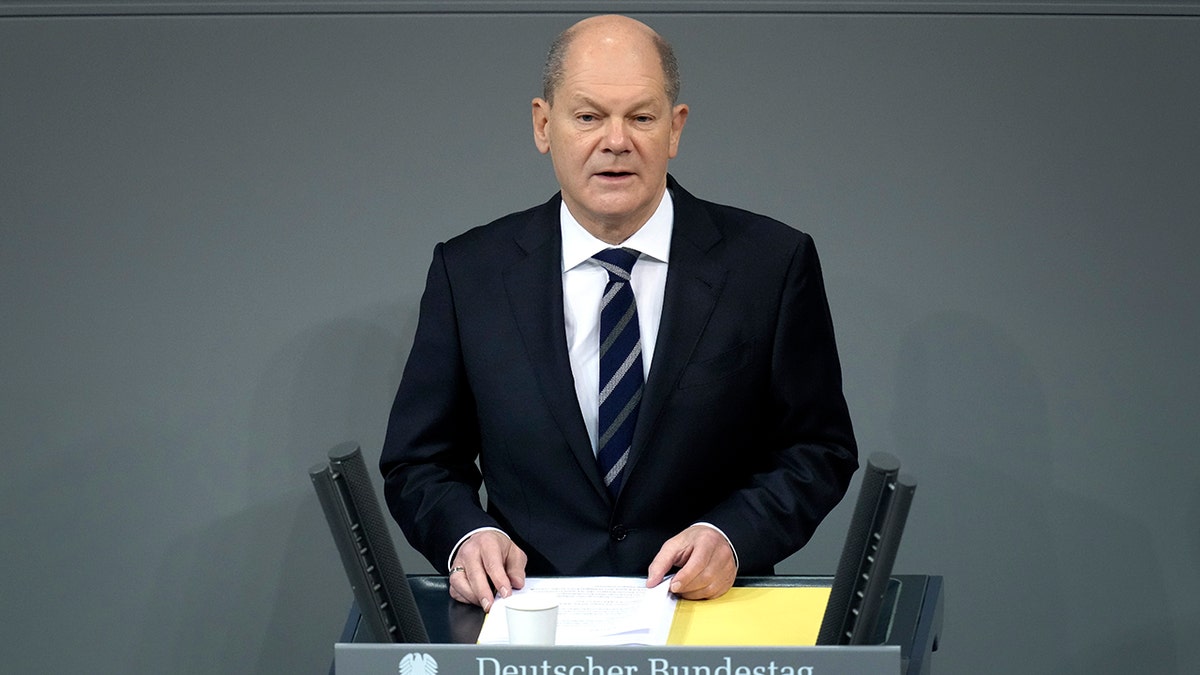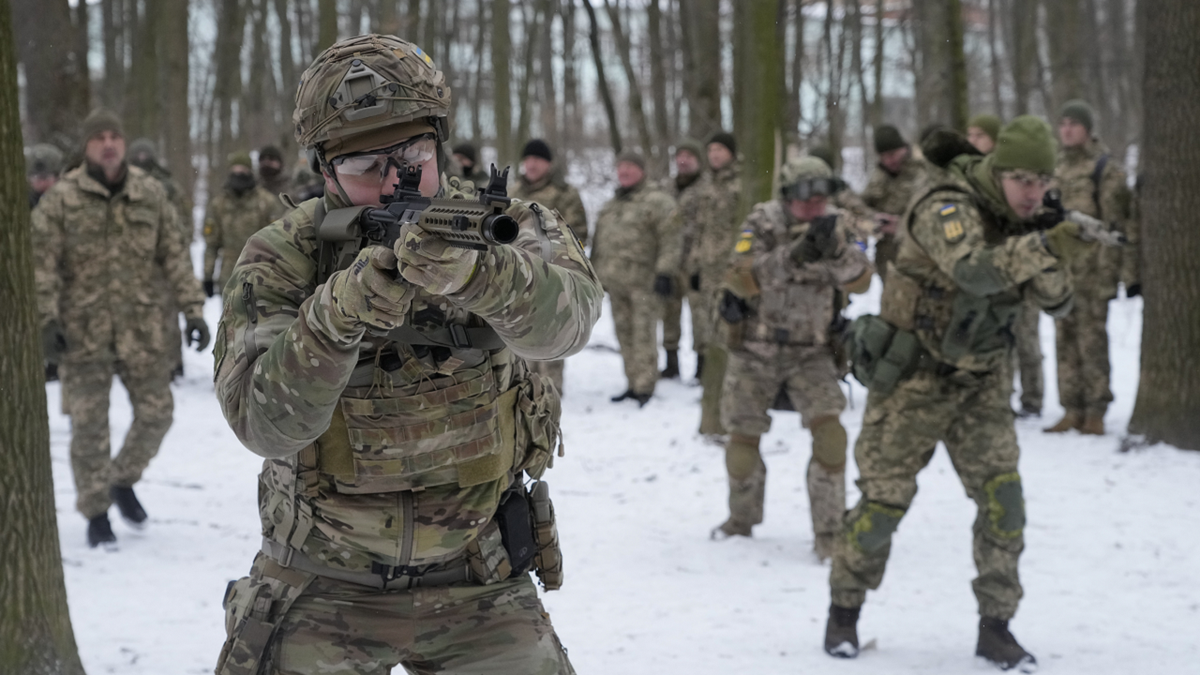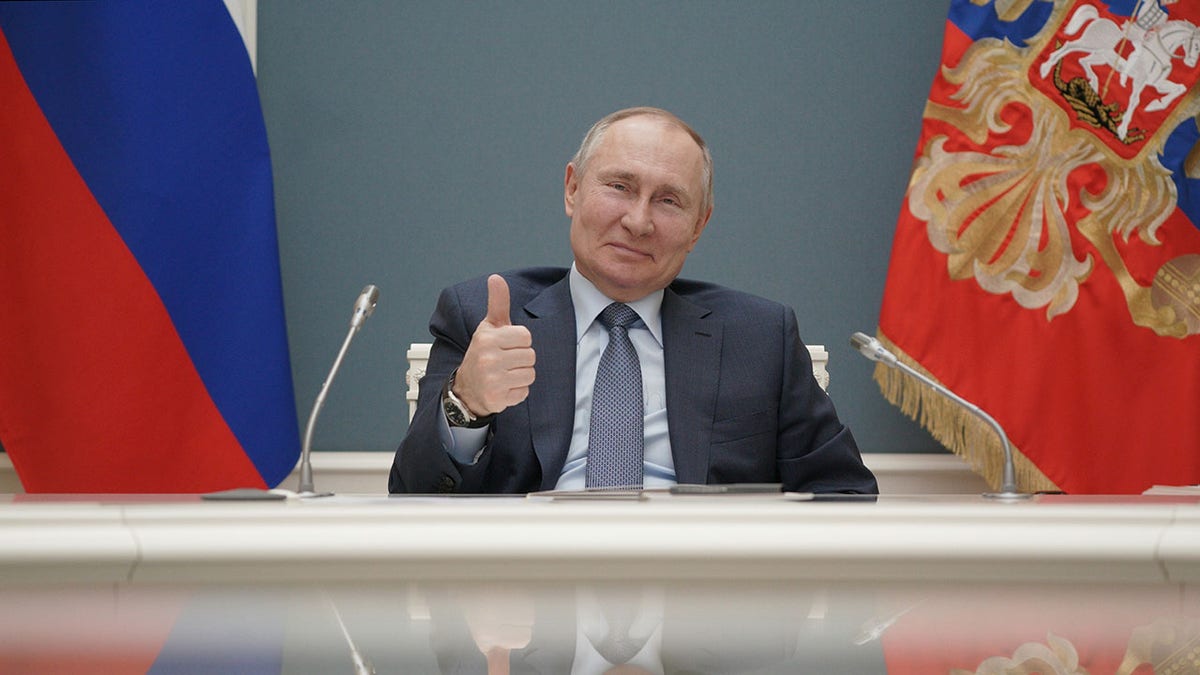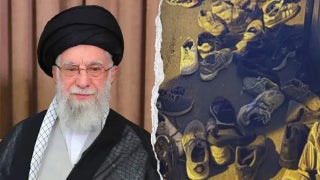30 trainloads of Russian troops, gear deployed in Belarus: Reports
Fox News senior foreign affairs correspondent Greg Palkot reports from Kyiv, Ukraine.
Germany’s refusal to join other NATO members in providing weapons to Ukraine has caused some allies to question Berlin’s resolve to oppose Russia.
The U.S. and U.K. over the past few weeks revealed critical information regarding Russia’s plans, including the intention to run a "false-flag operation" in Ukraine to justify invasion along with plans to install a pro-Russian leader. These revelations drove NATO allies to send troops to nearby countries, such as the U.S. deploying planes to Estonia, Denmark sending fighter jets to Lithuania and France sending troops to Romania.

German Chancellor Olaf Scholz delivers a speech during a meeting of the German federal parliament, Bundestag, at the Reichstag building in Berlin, Germany, Wednesday, Dec. 15, 2021. (AP Photo/Michael Sohn)
But Germany has remained relatively quiet, with at least one report from the weekend that Berlin had gone so far as to block Estonia from supplying old German howitzers to Kyiv. Ukraine criticized Germany, saying that it's stance on arms supplies does "not correspond to the level of our relations and the current security situation."
Newly-elected German Chancellor Olaf Scholz responded that Germany will help with economic sanctions but will not provide "lethal weapons," leading some to question Germany's commitment to opposing Russian aggression - particularly as Germany's growing dependence on the Nord Stream pipeline could be hindering negotiations from a position of strength.
US HANDS RUSSIA WRITTEN RESPONSE TO DEMANDS, SAYS UP TO KREMLIN HOW TO PROCEED
Former German Chancellor Gerhard Schröder, also known as "Putin's pal," pushed for the original Nord Stream pipeline during his term but did not see activation until the Obama administration, at which point he joined the board to oversee its growth and maintenance. The Nord Stream 2 has seen a faster development and deployment despite sanctions placed on it by the Trump administration. With those sanctions removed, Germany remains keen to see the pipeline activated sooner than later.
Scholz insisted that the pipeline is a "business project" – nothing more and nothing less, according to German outlet DW. But within his coalition, he faces opposition from other leaders such as Foreign Minister Annalena Baerbock of the Greens, who tried to cut German reliance on Russian oil via the pipeline.
The German Ambassador to the U.S. Emily Haber tried to highlight the administration’s apparent united stance on the issue, tweeting out Wednesday that Scholz and Baerbock made it clear last summer that "nothing will be off the table, including Nord Stream 2."
Biden last year removed sanctions on the Nord Stream 2 pipeline, allowing construction and activation to proceed – a move that some Republican lawmakers criticized for strengthening Russia's position in negotiations with Europe. Sen. Ted Cruz, R-Texas, pushed for a vote on preemptive sanctions, which Senate Democrats countered with plans to sanction the pipeline only in the event Russia acts on military ambitions in Ukraine.
RUSSIA SHOWS ‘EVERY INDICATION’ OF USING ‘MILITARY FORCE’ IN UKRAINE BY MID-FEBRUARY: STATE DEPT.
The White House underscored this stance, telling Fox News Digital that any preemptive legislation would "have undermined our efforts to deter Russia and removed leverage the United States and our allies and partners possess in this moment all to score political points at home."
"And it would have come at a moment where we need to be closely united with our European partners, including Germany," an administration spokesperson said. "It makes no sense."

Members of Ukraine's Territorial Defense Forces, volunteer military units of the Armed Forces, train in a city park in Kyiv, Ukraine, on Saturday. (AP/Efrem Lukatsky)
The plan to allow Russia to develop the pipeline to create leverage in times of political crisis may have backfired as Germany has also rapidly grown dependent on the completion and activation of the pipeline.
Norbert Röttgen, a senior conservative lawmaker in Germany, told The New York Times that "Germany is critical to achieve unity."
PUTIN WANTS TO BUILD A NEW SOVIET UNION AND HE WON'T STOP WITH UKRAINE
"Putin’s goal is to split the Europeans, and then split Europe and the U.S.," Röttgen said. "If the impression prevails that Germany is not fully committed to a strong NATO response, he will have succeeded in paralyzing Europe and dividing the alliance."
Rebekah Koffler, a former DIA intelligence officer and author of "Putin’s Playbook: Russia’s Secret Plan to Defeat America," told Fox News Digital that Biden’s decision to remove sanctions on the pipeline was indeed a mistake.

Russian President Vladimir Putin gives a thumbs-up as he attends a foundation-laying ceremony for the third reactor of the Akkuyu nuclear plant in Turkey, via a video link in Moscow, Russia March 10, 2021. (Sputnik/Alexei Druzhinin/Kremlin via Reuters/File)
"Alone, this action would not have prevented Putin from what he is doing," Koffler, said. "This isn’t something Putin thought of last week or last month. Putin has been developing a plan to rebuild a supernational state – not unlike the USSR – ever since he pretty much became president of Russia."
Sanctions individually will not make the kind of impact or provide any "magic bullet" for the situation, but together create a cumulative effect that would help deter Russia, Koffler explained. Germany, therefore, has a greater reliance on the pipeline than does Russia, but Germany also faces other, greater concerns.
SIX US FIGHTER JETS ARRIVE IN ESTONIA AMID UKRAINE-RUSSIA TENSIONS
Putin rose to power using dossiers he gathered during his time as a KGB agent – a role he largely fulfilled while stationed in Dresden, meaning he spent time recruiting and running a network of agents in East Germany. Most of this information would have been destroyed during the fall of the Soviet Union, but that doesn’t change the fact that some German officials may have formerly worked with the current president of Russia.
Those ties could play into how Germany is responding to Russia, according to Koffler.
CLICK HERE TO GET THE FOX NEWS APP
"Until Yeltsin selected him, no one knew this guy and then he just popped out," Koffler explained. "He was in counter-intelligence, collecting dossiers on everybody."
Koffler also argued that Germany is not acting as an ally also out of a possible "guilt trip" over its actions in World War II in the region, which may have held it back from sending weaponry and such in Ukraine over fears of overstepping – or at least being seen to do so.
The Associated Press contributed to this report.








































